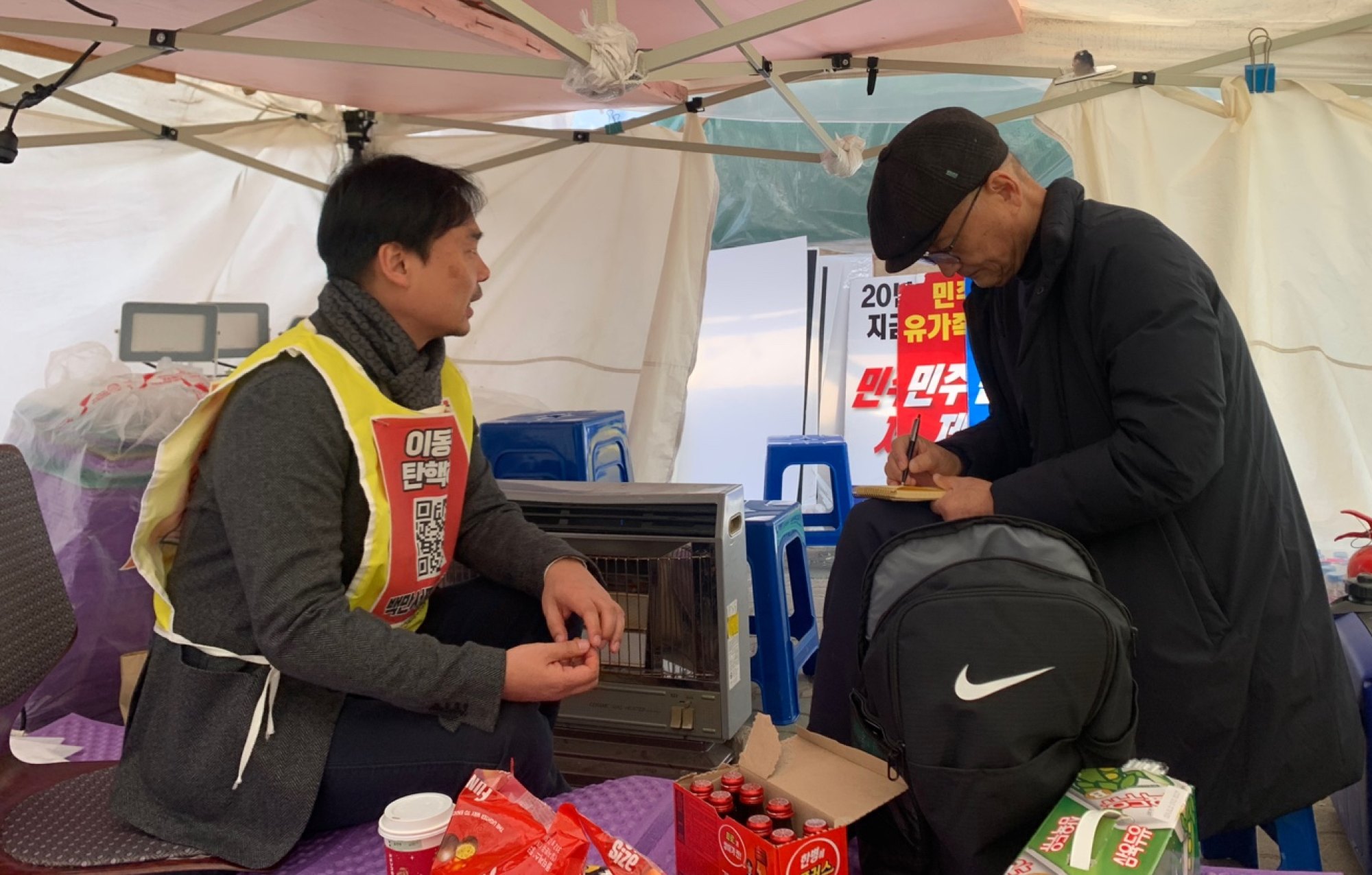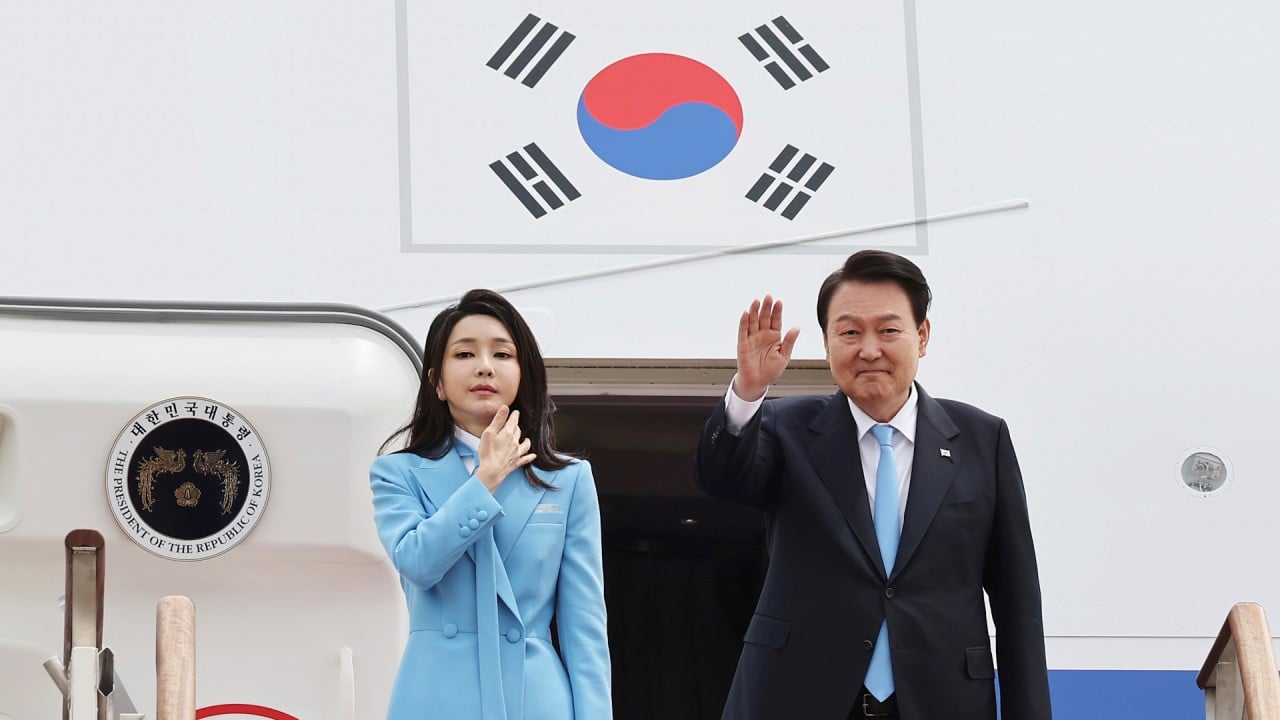
South Korea’s Yoon accused of using ‘fake news’ crackdown to gag dissent ahead of polls
- The government has slammed a fictionalised video that depicts President Yoon admitting to incompetence, saying it amounts to fake news
- Officials have in recent months warned of the dangers of AI-generated deepfake videos, but critics say the crackdown is a guise to target free speech ahead of elections
The video, shared on social media in recent months, was initially and erroneously reported by local media to be an AI-generated “deepfake”, and later found to have been pieced together with clips from Yoon’s 2022 presidential election campaign speech.
“I, Yoon Suk-yeol, have been enforcing laws that harass our nation,” the 46-second fabricated video featured him saying. “I ruined our country and made its people suffer by clinging onto an ideology that deviates from common sense.”
South Korea’s ‘fake news’ clampdown has ‘chilling effect’ on free press: critics
Titled “President Yoon’s Fictionalised Sincere Confession Speech”, the clip went viral after being posted on Instagram, Facebook and TikTok by an anonymous creator.
In the process of being spread online, the full title identifying the video as a fictionalised work was often dropped, causing both lawmakers and the news media to speculate that it might be a deepfake video.
After it emerged the video was a fictionalised compilation, some media outlets began describing it as satire, to the ruling party’s displeasure.
“We express serious concerns over the fact that certain outlets are labelling the false and fabricated video as a satirical video, and reporting it is acceptable because it has been marked as fake,” presidential spokeswoman Kim Soo-kyung said during a press briefing.
“This is an action that goes against the calling of the press, which should root out fake news,” she said. “The presidential office plans to respond strongly to such false and fabricated videos in the future.”
Critics said officials and the ruling People Power Party were capitalising on the incident to gag critical voices ahead of the parliamentary election in April.
“How can it be called anything other than satire when the creator of the video said in advance that it was a ‘fictionalised President Yoon’s confession’?” the National Union of Media Workers questioned in a statement.
It accused the authorities of labelling the video as “deepfake disinformation” to block the public’s access to it, as there was no legal basis for sanctioning simple satire.
The government has increasingly been accusing the media of spreading fake news, especially when reports paint Yoon in a bad light, observers and media professionals say.
“Freedom of the press and of expression have been facing growing threats under the Yoon government,” said Kim Seo-joong, a communications professor at Sungkonghoe University in Seoul.
Pyongyang may use ‘fake news’ to influence South Korea polls, Yoon warns
The Yoon government, reeling from low approval ratings, is “highly sensitive” towards criticism and has “no qualms” about threatening to shut down news outlets for spreading what it believes to be fake news, he added.
While alarm bells should be raised over the growing dangers of deepfakes, satire should not be limited in a free democracy like South Korea, the professor said.
The ruling conservatives, however, say officials are merely levelling the playing field of a media scene it claims is full of “distorted and biased” reports led by left-leaning media workers sympathetic to the past liberal government.
Prosecutors last September raided the offices of JTBC TV and online news outlet Newstapa over a report that suggested Yoon had helped cover up a crime during his tenure as a prosecutor in 2011. JTBC and two other broadcasting firms were fined over the story, which authorities labelled as fake news.
Prosecutors also charged several journalists with defamation over the report, alleging they had spread falsehoods with the intent of discrediting then presidential candidate Yoon.

Yoon Chang-hyeon, head of the National Union of Media Workers, said officials were “more concerned about who is the subject of satire” rather than whether the video was indeed satire or defamatory.
He suggested the country’s supposedly independent Korea Communications Standard Commission – which oversees the media’s public accountability, the fairness of broadcasting content and safe internet communications – was effectively operating as “a state censorship organ” under the Yoon government.
“To prevent personal damage and social disruption caused by deepfake disinformation, self-regulatory efforts by platforms are strongly required,” said Lee Sang-in, deputy head of the Korean Communications Commission, at the meeting.
He urged the companies to “engage in more active and pre-emptive self-regulatory efforts in the lead-up to important elections” in South Korea and around the world, including the United States’ November presidential vote.


